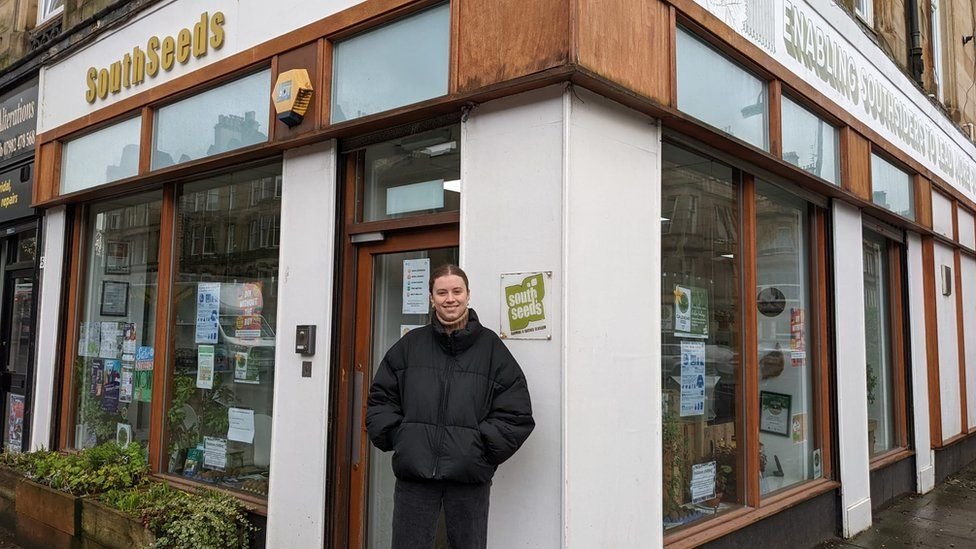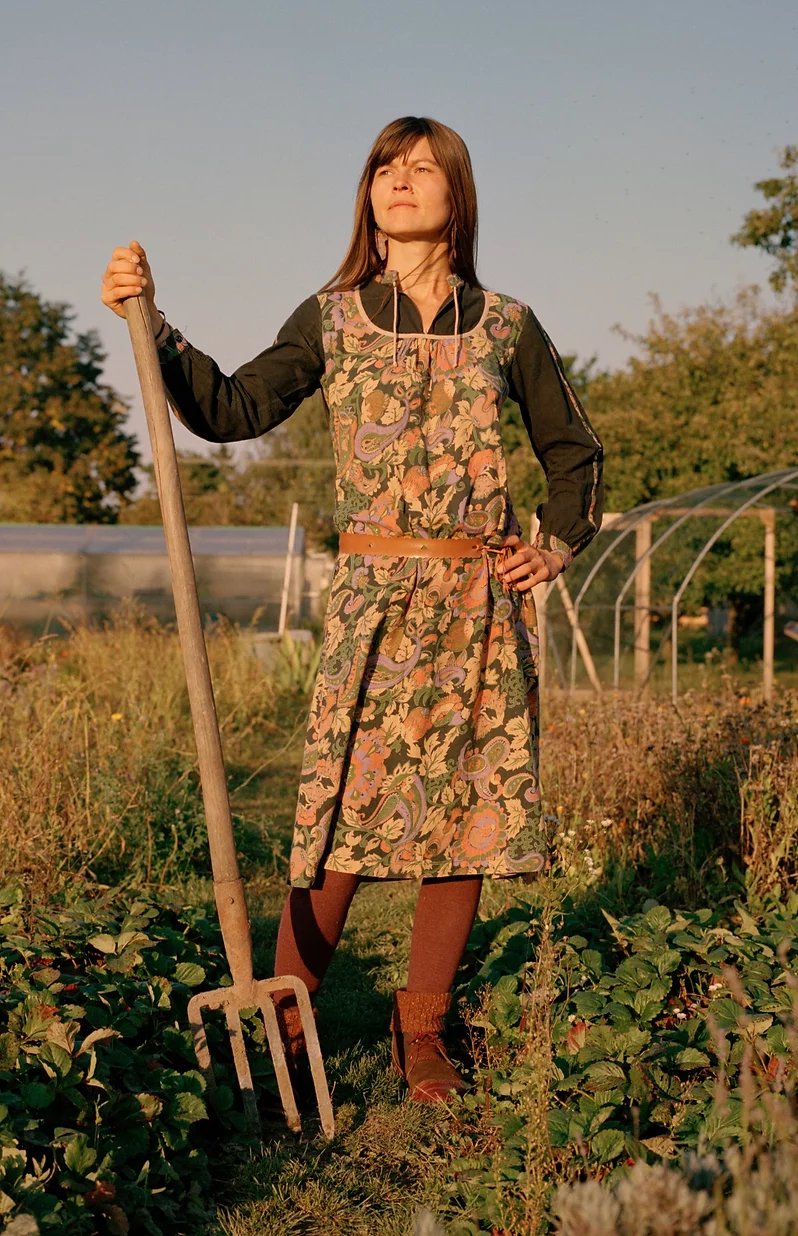Responses to the cost of living crisis? Community energy groups and cooperative farms offer help
Posted on 06 Jul 2022 Categories: Blog, Community Initiatives, Cross-posts, Land
by The Alternative Global

The cost-of-living crisis is descending on all of us, and while the solutions obviously have to be, to some degree, macro-oriented and defensive (see this great blog from James Meadway, laying out the options), we’re also always interested in responses to crisis that emphasize and draw on communities’ own power, resources and imagination. Here’s two:
COMMUNITY ENERGY GROUPS HELPING PEOPLE SAVE ON THEIR COSTS
The BBC reports on community energy groups in Glasgow’s South Side, Colchester and Plymouth, who set themselves up to provide an integrated overview of people’s energy usage, helps them with access to government grants and other support schemes. The policy context is this, from the BBC report:
When energy regulator Ofgem lifts its price cap on energy bills in April, about 18 million households will see a steep increase in their bills. A coalition of charities, including Age UK and Save the Children, have warned this will leave an estimated six million people in Britain struggling to pay to heat their homes.

South Seeds, Glasgow: ‘Since November the service has helped locals save a potential £35,000 – via a government emergency vouchers scheme, hardship grants from energy companies like British Gas, EDF Energy and SSE, and goodwill payments following complaints to suppliers – money, she says, wouldn’t have come through without some expert in-person support.
‘The team also offer personalised advice and tips for residents through home visits. Because there are so many types of properties, advice is “very dependent on each home”, she says, but simple steps make a difference, “like draught-proofing, closing the curtains, or turning the thermostat down”.
Colchester: ‘At the workshop, held in the old Customs House, a building that was once the hub of the local shipping industry, he meets a woman called Sarah who has four children. At the end of a short conversation, he discovers she could save £100-200 per year just by switching from a prepayment meter to direct debit payments.’
Plymouth: ‘Clare Mains is the manager of the Energy Team at Plymouth Energy Community, which has been supporting people in the city since 2013. She explains that “calls have gone up by half” and their caseload has grown by “650 homes in the last month”. Ms Mains says a personal approach is “absolutely essential” in helping people access useful support because while there are a lot of grants, for instance, they have differing eligibility criteria, and you can’t access them all in one place [though the UK Gov does promote its Simple Energy Advice platform].
‘‘The service we provide is a single point of contact that holds this information and can navigate it,” she says. Her primary aim “is to help people have more control over what is a confusing system.”
FARMING THE FUTURE CAN MEAN FAMILY FARMS BEING INHERITED BY COOPERATIVES IN COMMUNITIES

Another angle on responses to the cost-of-living crisis – though it’s more long-term – comes from the magazine and eco-think-tank Stir To Action. Looking at reliable and sustainable food supply, they’ve identified an opportunity for hundreds of thousands of family farms with no inheritors – and the option for many of them to transfer into community-based and -run assets. The blog is below:
How a national crisis of family-owned farms presents an opportunity for a new generation of community owners
Across the UK around 120,000 family-owned businesses are planning to retire or transfer ownership over the next few years (ONS), but two-thirds of these owners still do not have a succession plan. With commercial and policy pressure on UK land use and food production at an unprecedented level, there is a significant threat to current land use, and it is already undermining local and national food resilience through pushing our economy towards higher imports and lower employment.
New Models for Family Farm Succession, a new project from a consortium led by Stir to Action and Shared Assets, will tackle this by working with family farm owners and community food initiatives to explore how family farmland can be part of long-term efforts to create more food security in the UK, through selling or transferring to local co-operatives.
The pilot will support a new approach to succession planning by focusing on the social, cultural, and financial considerations for both family farmers and community food initiatives through a series of workshops, options reports, and new financial models for land transfer.
The pilot is an effort to transform the current financial marketplace and build more cultural awareness within the family farm market, and to also follow pioneers such as Fordhall in Shropshire and Stockwood in Worcestershire, where family farmland has been saved through thousands of community investors.
The value of family farms is clear within our national economy and food supply, and this project will focus on ensuring financial security for retiring farmers and long-term access to farm land for community food initiatives. With a new rush to acquire land for non-farming initiatives – such as carbon offsetting and private rewilding – this pilot will support the farming community to secure a future for food production in the UK.
Olivia Oldham, of project funder Farming the Future, said “It is increasingly clear that land is at the heart of the crises we face—from industrial food production and environmental degradation, to social injustice and even ill-health and wellbeing. But, if we can collectively reimagine our relationship with it, land can also be the solution. This project is an exciting exploration of what the future of our rural landscape might look like, and practical mechanisms for getting there that take care of retiring family farmers and provide new opportunities for communities to access farmland for the common good.”
More here. This is an initiative which has been funded within a bigger project called Farming The Future, which seems to be a grant-making and networking body:
[FTF} exists to strengthen and amplify the movement for an agroecological system of food and farming. Agroecology offers a vital antidote to the industrial food system and its associated consequences of environmental damage and societal injustice. It is built on equity, harmony, compassion, and renews our deep cultural connection with the earth.
Farming the Future takes a strategic and experimental approach, rooted in deep cooperation within and across the whole system, from how food is produced and distributed to who is included and excluded from access to good food and the land.
We pool funds, knowledge, and networks across funders and actors in the movement, working as equals. We question conventional philanthropy, and continually reassess our processes to be flexible and appropriate to our aims and purpose.
Together, we are all co-creators. Farming the Future draws on our collective wisdom and imagination, and moves towards a holistic, resilient, fair food system for now and for future generations.
More here. To make project enquiries, contact them on farming@stirtoaction.com. For more information on the consortium, see Stir to Action, Shared Assets, Ecological Land Cooperative, and CSA Network.
Posted on 06 Jul 2022 Categories: Blog, Community Initiatives, Cross-posts, Land

